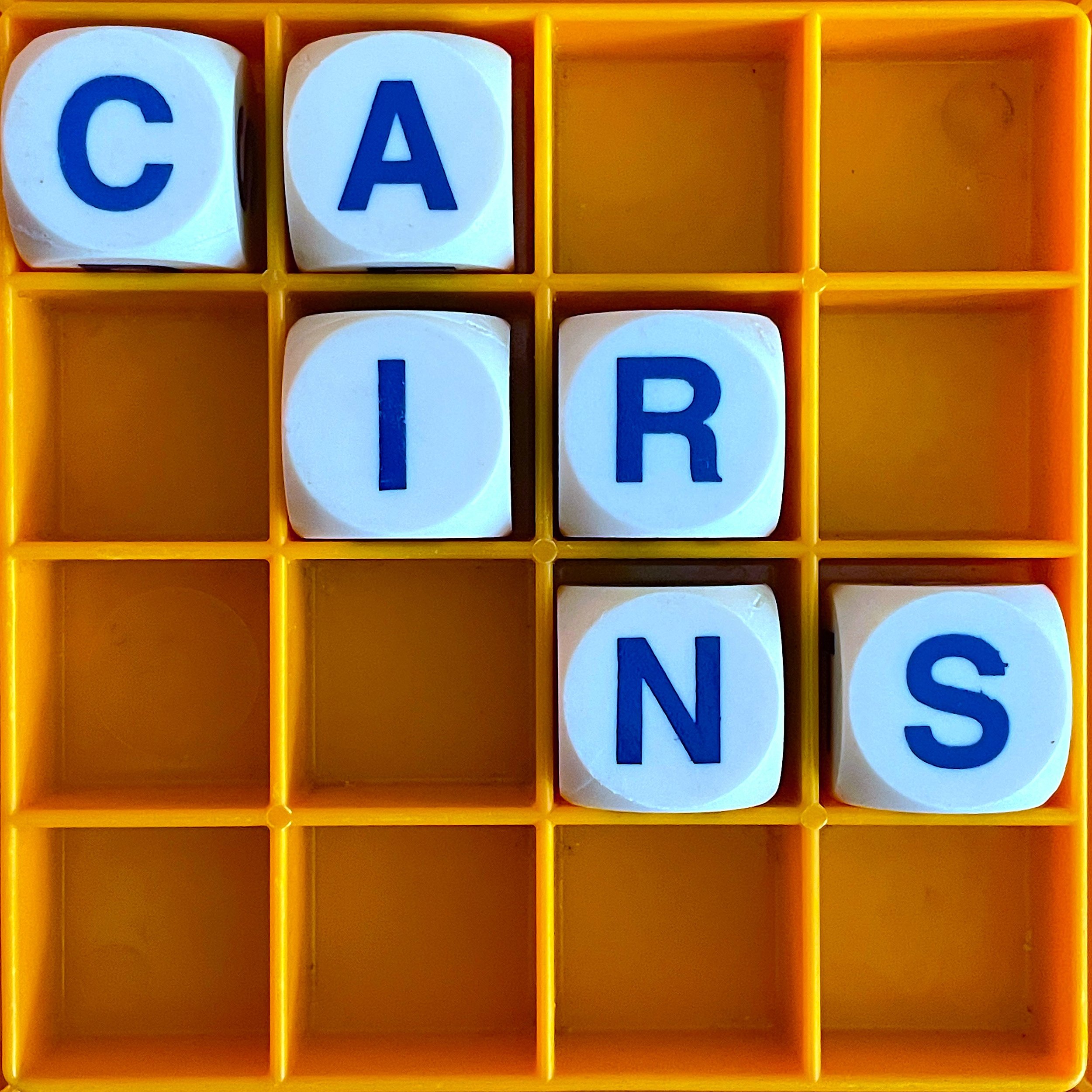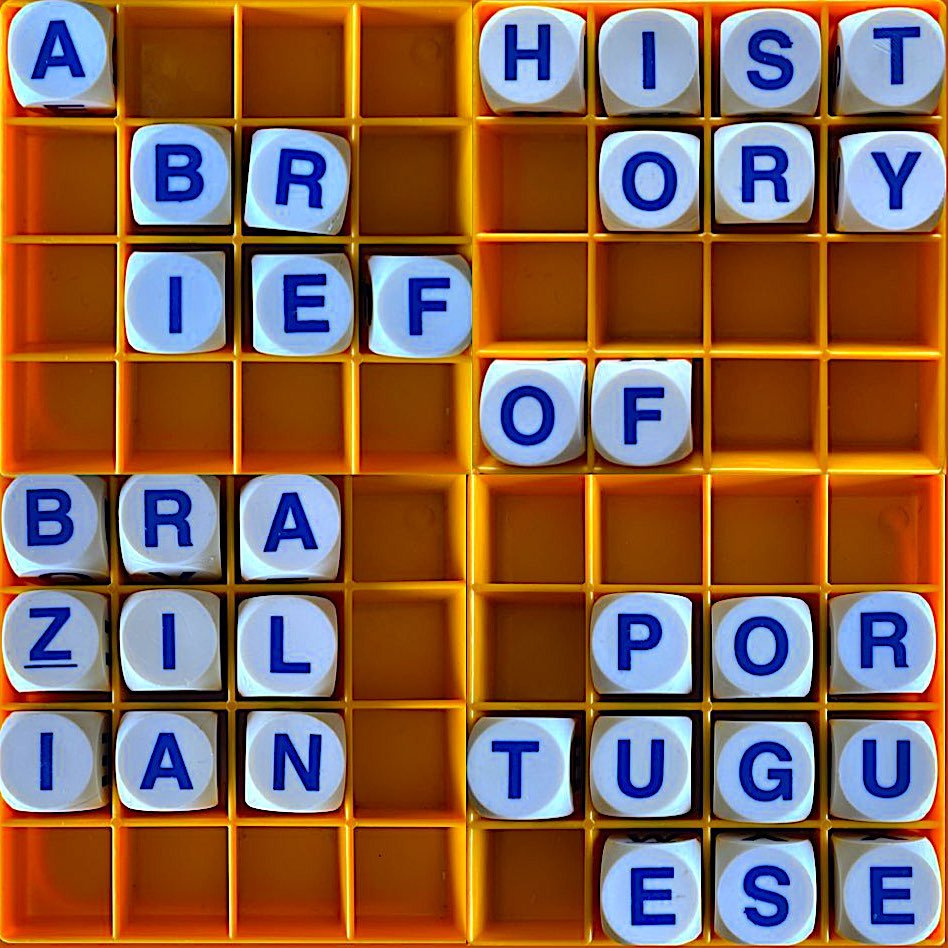LINDSAY ROSE RUSSELL: I don't think James Murray felt like he was alone in making the Oxford English Dictionary. I think he was keenly aware of himself as a part of a very large and many tentacled team. In a lecture he gave in 1900, he talked about every lexicographer as adding their stone to the cairn. You know, cairns like the little things when you go hiking that are piles of stones that tell you you're still on the right path. So I think Murray understood his own work as contributing to a larger lexicographical project where he was not a lone dictionary maker in the effort of dictionary making more grandly. But, I don't know; in history, I think it's easier to tell the story of a singular man. Because of course it's easier to tell the story of a singular man, as opposed to the story of thousands of people working on a single dictionary and doing all different kinds of things.
Read moreAllusionist 180 Project ENABLE transcript
STERLING MARTIN: Growing up, I've always had an interest in science and that's something my family helped nurture. Also just growing up, there weren't many Navajo words in science. Then I went to undergrad at the University of Iowa and my parents were like, "Oh, what are you doing?" And I worked in a research lab, so I could get some bench experience, and just trying to explain to them what I was doing scientifically, I could tell they weren't really catching on to what it meant.
Read moreAllusionist 179 Andy Quiz transcript
HZ: Which of the following sweeteners is named after an ancient Greek mythological character? A. saccharine, B. agave, C. stevia, D. aspartame?
ANDY ZALTZMAN: Well, Steve is not an ancient Greek mythological character. He's the third wheel In the Bible origin story along with Adam and Eve.
HZ: They got rid of him in the translations.
Allusionist 178 Uranus transcript
Have you ever wondered why the planets in our solar system are all named after Roman deities, except two of them?
One of those exceptions is Earth, which means, well, earth, and it doesn’t fit the system because it wasn’t formally discovered by humans, it was where they already were, so when they started identifying planets thousands of years ago, they hadn’t yet counted Earth as one.
And the other exception is Uranus.
Read moreAllusionist 176 Fat part 1 transcript
AUBREY GORDON: The words that always bothered me considerably more than ‘fat’ are the many, many, many euphemisms that people who aren't fat come up with to supplant fat.
HZ: ‘Curvy’. My chins are.
AUBREY GORDON: Totally. I'm like, “I have one curve, guys! I'm just like an egg shape.”
Allusionist 175 Eurovision part 2 transcript
DEAN VULETIC: There are lots of economic, cultural and political factors that can decide which language will be most represented in a country's entries, even when it has various national languages.
HZ: Azerbaijan: the only country never to have entered in its national language.
DEAN VULETIC: Correct.
HZ: Could be this year.
DEAN VULETIC: Errrr, I doubt it, because the Azerbaijani government has been very ambitious in Azerbaijan’s Eurovision entries, in using them as a tool of soft power and cultural diplomacy. It has spent a lot of money in getting well-known songwriters and composers from across Europe to produce pop hits that could really win Eurovision. And of course, this means hits in English. And once Azerbaijan did win Eurovision in 2011 and went on to host the most expensive Eurovision ever in Baku. So Eurovision is also popular among dictators as a tool of cultural diplomacy - or as a tool for whitewashing their human rights and democratic records.
Allusionist 174 Eurovision part 1 transcript
The Eurovision Song Contest has given us the international renown of Celine Dion, Måneskin, Dana International, Conchita Wurst and Riverdance; tear-off skirts, nul points, shiny shiny costumes, a band of babushke dancing around an onstage bread oven; not to mention fraught politics, within and between nations. And most importantly for our purposes: linguistic intrigue! So much linguistic intrigue.
Read moreAllusionist 173 Death transcript
EVIE KING: I mean, if I was to google synonyms of ‘dead’ - let's try that. Synonyms, ‘dead’. See what comes up. ‘Deceased.’
HZ: ‘Deceased’ is just Latin for death.
EVIE KING: ‘Late’, ‘lost’, ‘lamented’...
HZ: ‘Lamented’!
EVIE KING: ‘Expired’ - expired! Like a cheese. ‘Departed’. ‘Gone’. ‘No more. ‘Fallen. ‘Slain’. Now you're starting to infer causes of death. ‘Slaughtered’, ‘killed’ - see, it escalates quickly. There’s not much, there's not much is there?
HZ: Which is odd considering how much death there is everywhere for everyone.
EVIE KING: Yeah, you get more, more synonyms for very boring words, don't you, very workaday words. I think basically maybe it comes down to the fact that dead is dead and we all know what that means, universally dead is dead, and there's no getting away from it, there's no escaping it and there's no getting around it. So we just have to face that word and use it. And if we don't feel like saying dead, we'll just go “passed away”.
HZ: Maybe that's the thing: maybe we don't need new vocabulary yet until we've learnt to get comfortable with ‘dead’.
EVIE KING: And then we can start really jazzing it up. Creating fun terms! Like, you know, when you get things like ‘bottomless brunch’ - that kind of thing for ‘dead’. I think we all know we've arrived when we've got a jazzy snazzy word for ‘dead’.
HZ: Something to look forward to.
Read moreAllusionist 172 A Brief History of Brazilian Portuguese transcript
CAETANO GALINDO: Brazilians are very confused and confusing and confounding about this relationship with the Portuguese language, because it defines us. We are the place that speaks Portuguese in the middle of a whole bunch of Spanish-speaking countries, and pretty much all of us speak it. And pretty much all of us speak only this one language. It's really something that defines us, and really something that we cannot try to deny or erase or… I don't know. But at the same time, you have this certainty that this was an imposed reality, that this is not what we could have.
Read moreAllusionist 171 Supplantation transcript
HZ: How do you feel when you have to tell someone your address?
LYLA WHEELER: I feel uncomfortable, like, why am I writing this? Why am I talking about this?
KRISTIN DALEY: I feel the same way. I'm mortified.
Allusionist 169 The Box transcript
SUBHADRA DAS: A guy from the UCL estates team, screwdriver, took the plaque off the wall.
HZ: That's it?
SUBHADRA DAS: That's how you dename a building. It's not difficult.
Allusionist 168 Debuts transcript
HZ: The work that RFSU does has included, over the past three decades, coming up with new terms, to fill gaps in the vocabulary or provide more options for talking about sex and bodies.
KALLE ROCKLINGER: Sometimes it's to highlight or make something visible that's not been really talked about. Sometimes it's to change norms in society in some ways, and sometimes it's been sort of a really strategic choice for us in our political work to refuse a certain term or way of describing things, to tell another story, so to speak.
Read moreAllusionist 167 Bonus 2022 transcript
TIM CLARE: Hippocampus, meaning ‘horse’ because it looks like a a sea horse, right? …Oh, don't look at them! They look absolutely terrifying!
HZ: I I've never seen a hippocampus, so I don't know.
TIM CLARE: There is a real David Cronenberg-like element to them.
Allusionist 166 Fiona part 2 transcript
HARRY JOSIE GILES: I don't think that anyone should come away from this conversation not wanting to use the name Fiona. I think this is a beautiful and rich history. It might not be quite the history that you imagined, but I think it's a beautiful history.
Read moreAllusionist 163 Rhino Borked Guy transcript
"Better to elect a rhino than an ass.”
Read more














